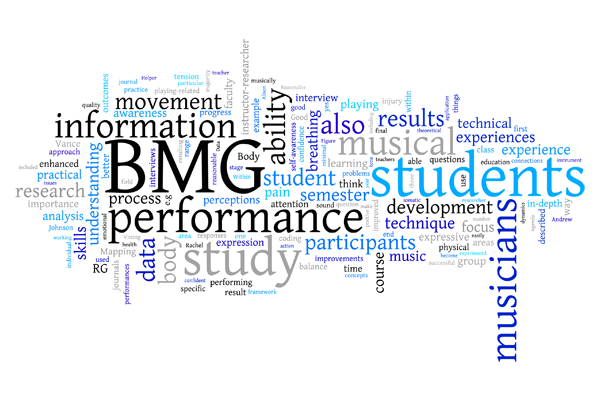The Influence of Body Mapping on
Student Musicians' Performance Experiences
Heather J. Buchanan
Montclair State University, USA
Terrence Hays
University of New England, Australia
Citation: Buchanan, H. J., & Hays, T. (2014). The influence of body mapping on student musician's performance experiences.
International Journal of Education & the Arts, 15(Number 7). Retrieved [date] from
http://www.ijea.org/v15n7/.
Abstract
This qualitative study examines student musicians' perceptions of their
performance and development resulting from Body Mapping (BMG) technique.
BMG is a somatic (mind-body) education technique designed to teach musicians
skills in self-evaluation and change for performing with sensory-motor integrity. A
qualitative study guided by an interpretive framework was used to collect data from
undergraduate students and faculty at an American university. Data involved indepth
interviews, self-reflective journals, and course materials. The findings show
BMG played a multi-faceted role. The majority of the students reported a positive
experience, stating that BMG enhanced their ability for musical expression (e.g.
dynamics, phrasing, conveying emotional information), the ability to focus more
easily on elements contributing to expressive outcomes, and facilitated greater
personal confidence in being more musically expressive. The study discusses how BMG instruction can be used for enhanced technical and performance outcomes.
The research findings are relevant for musicians, educators, and health practitioners
in the field of music medicine.
Visual Abstract

This article is available in PDF format.
|

